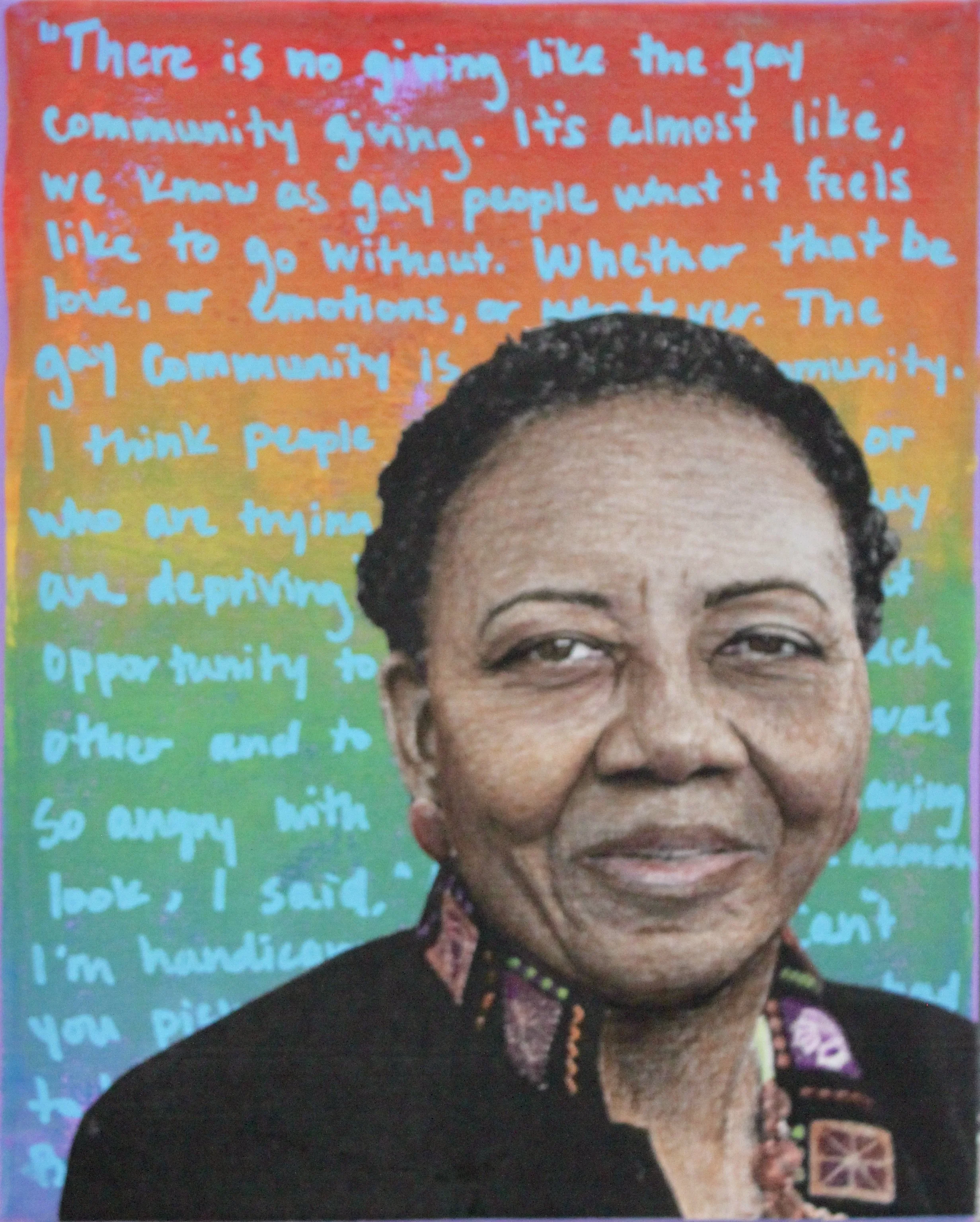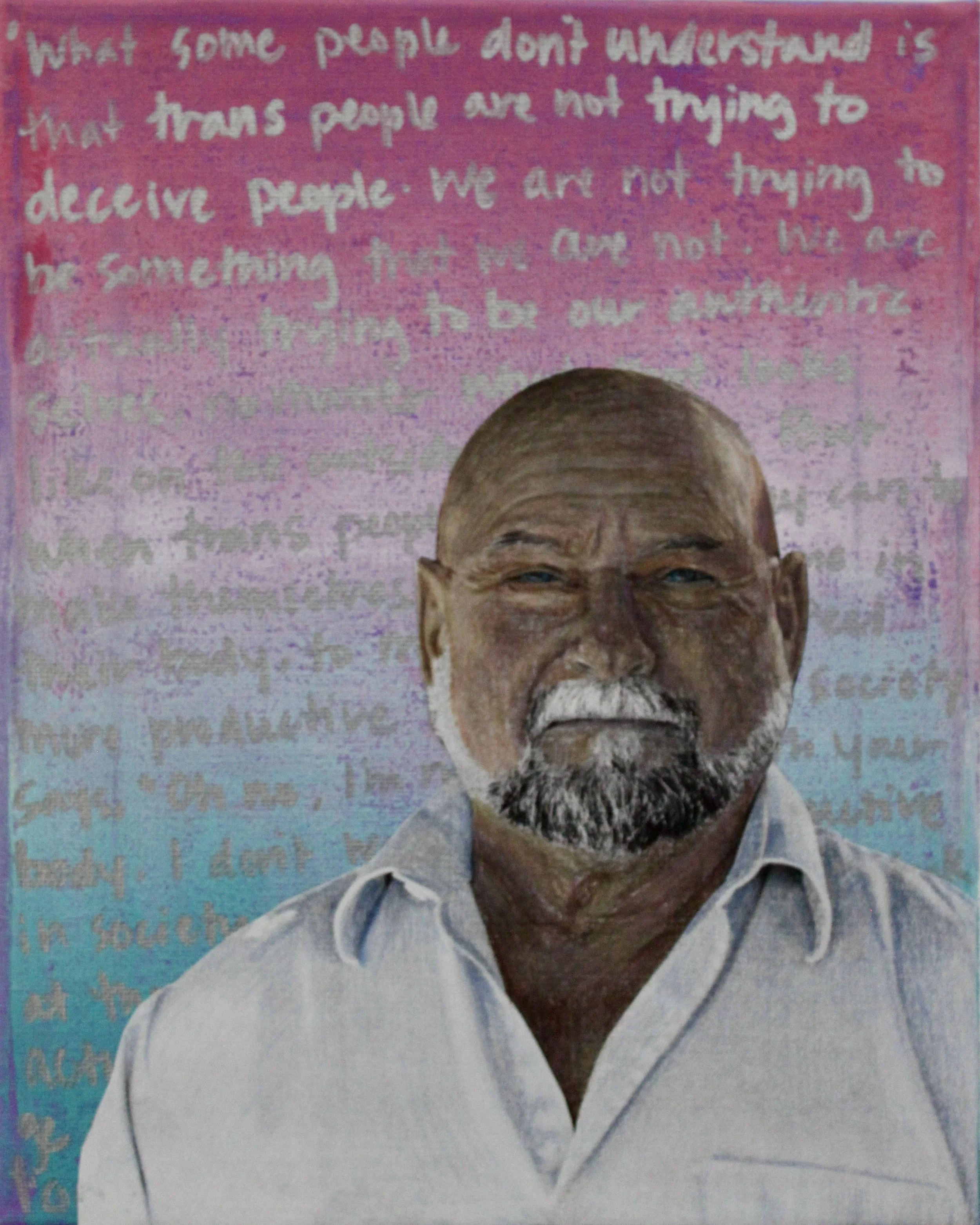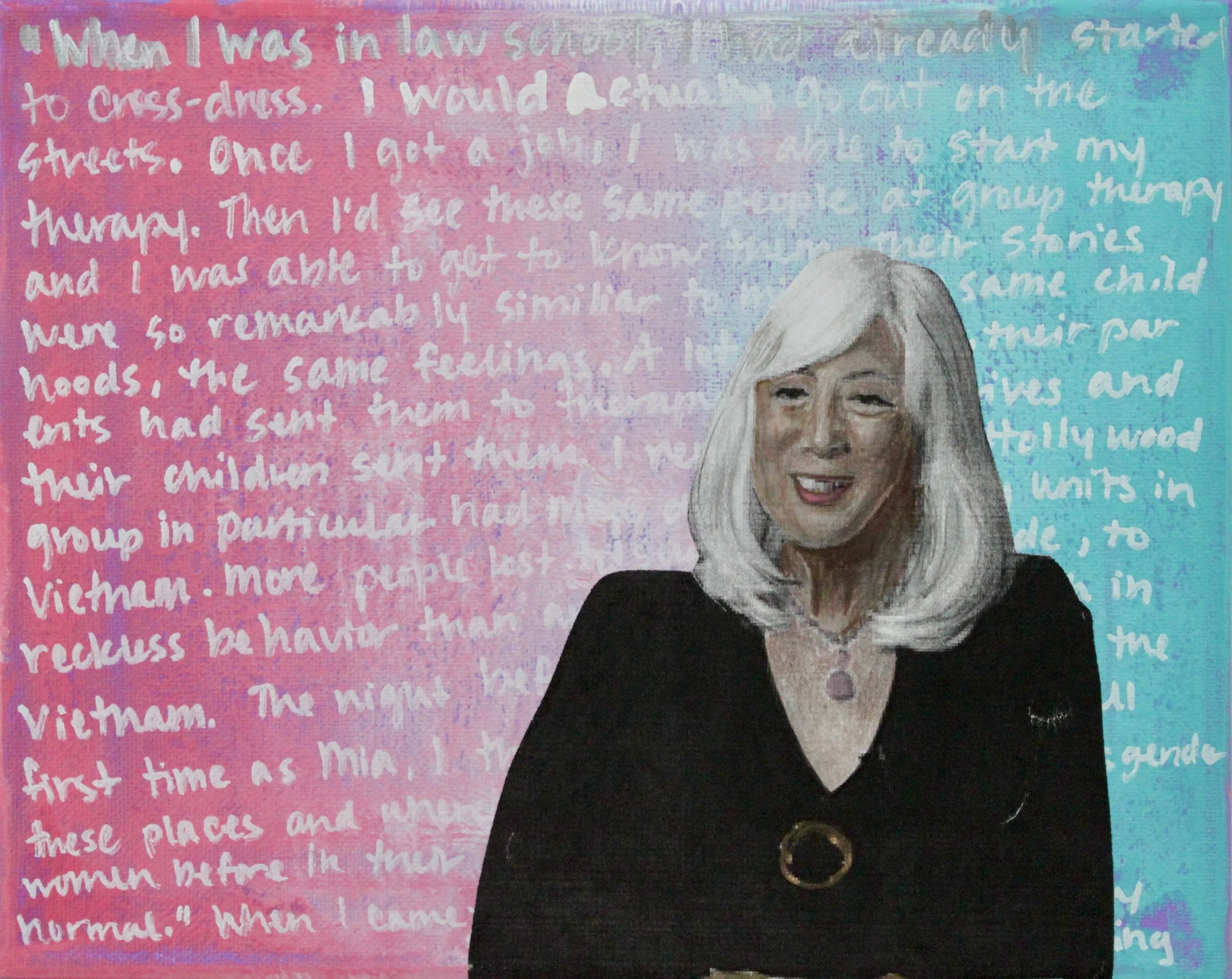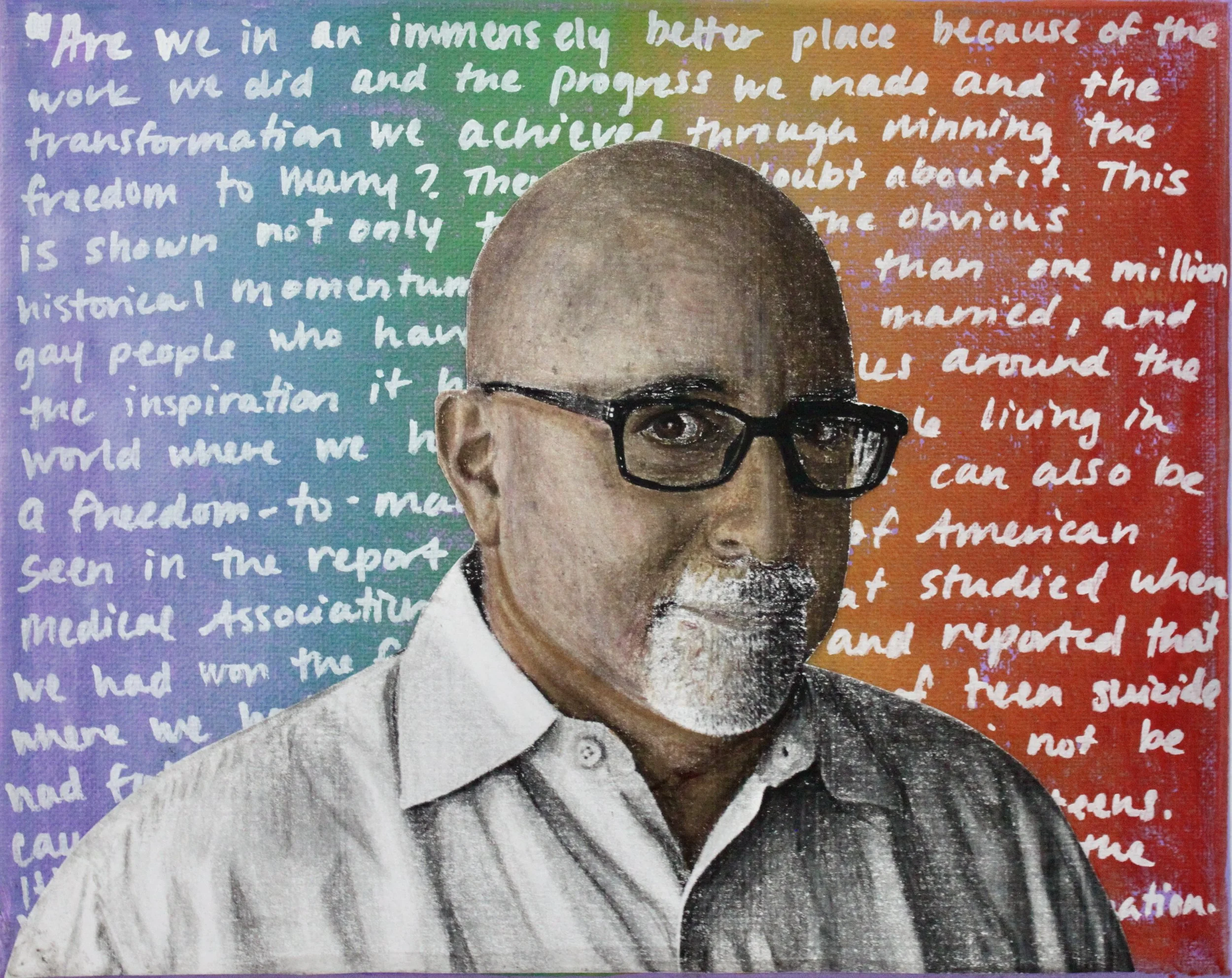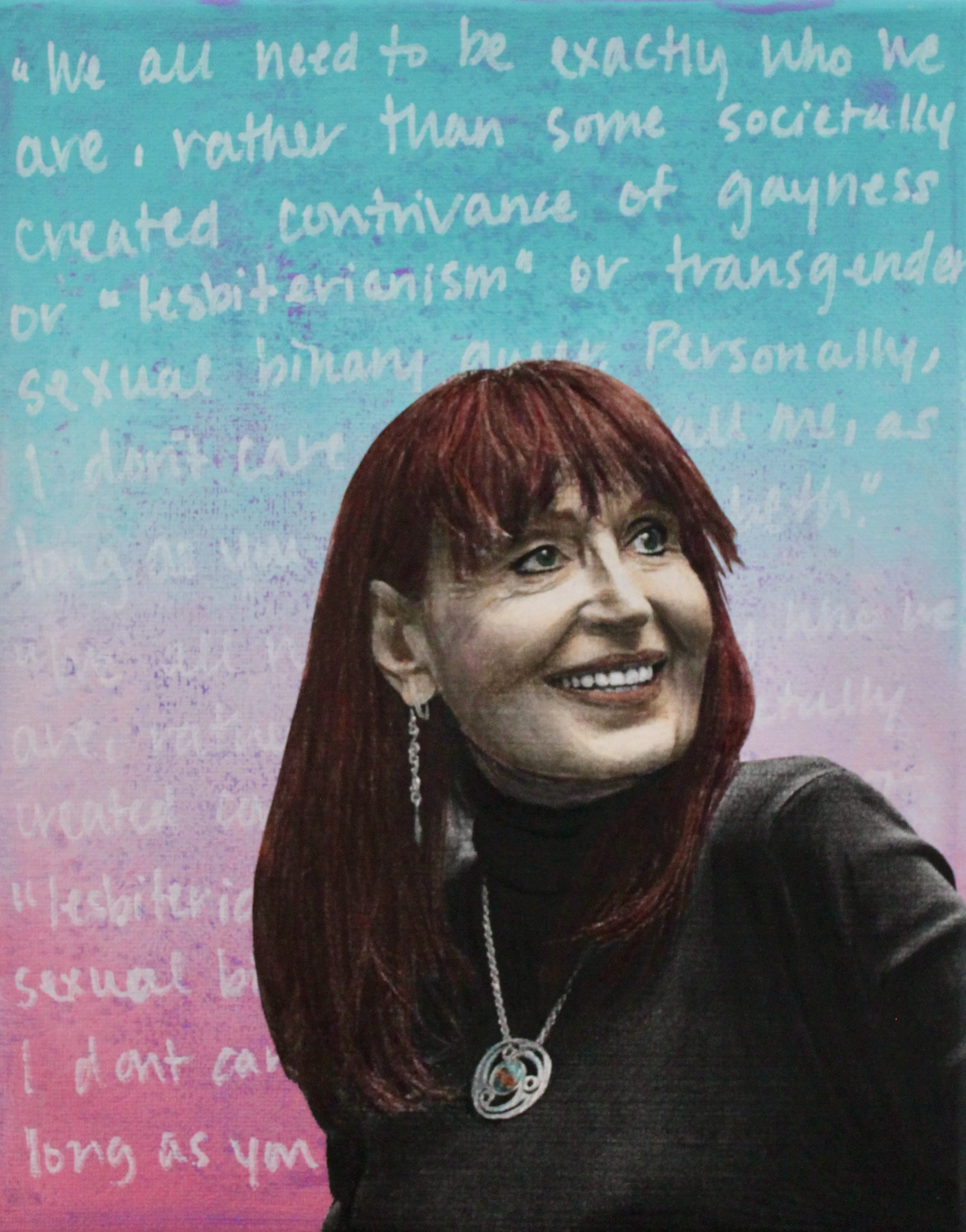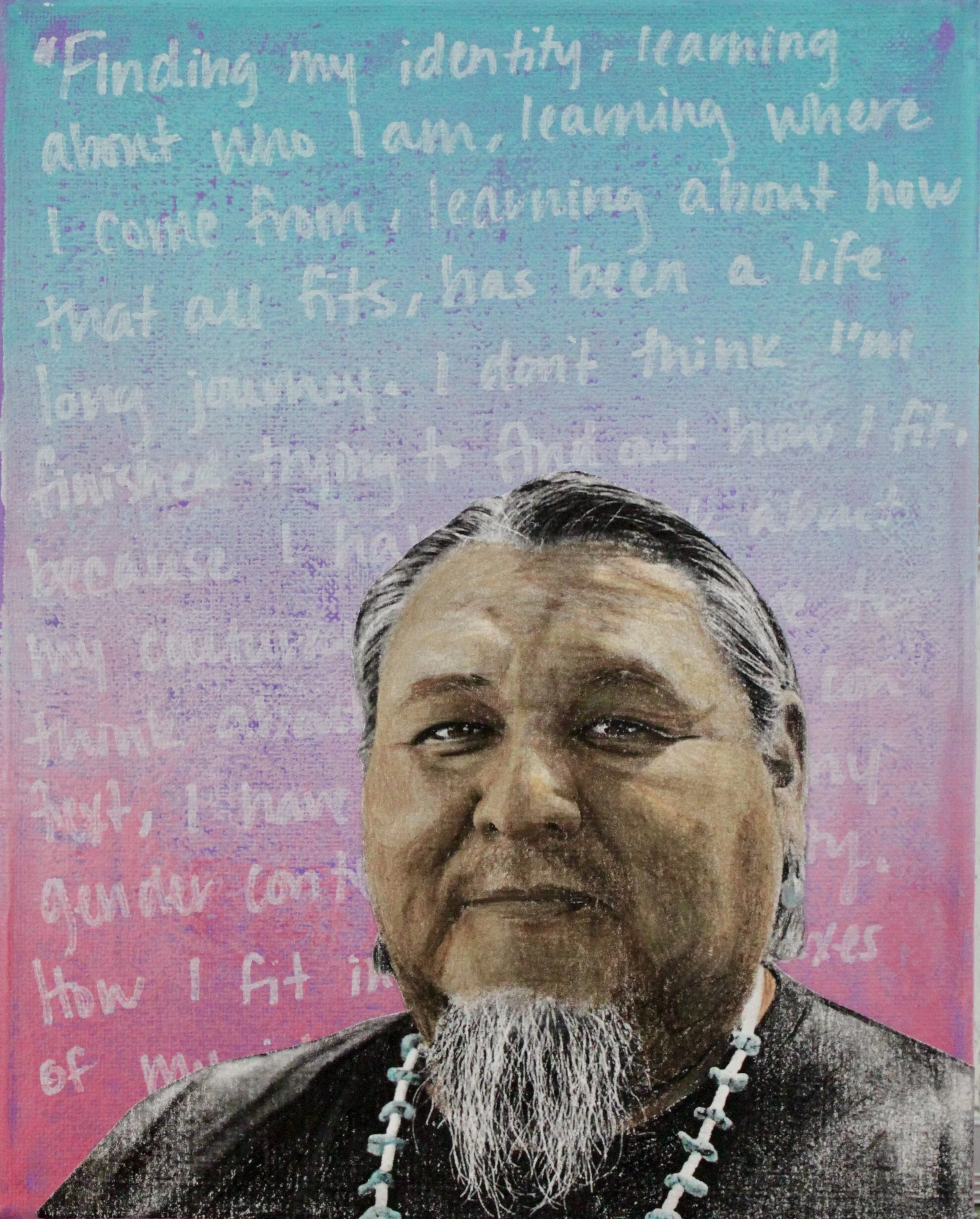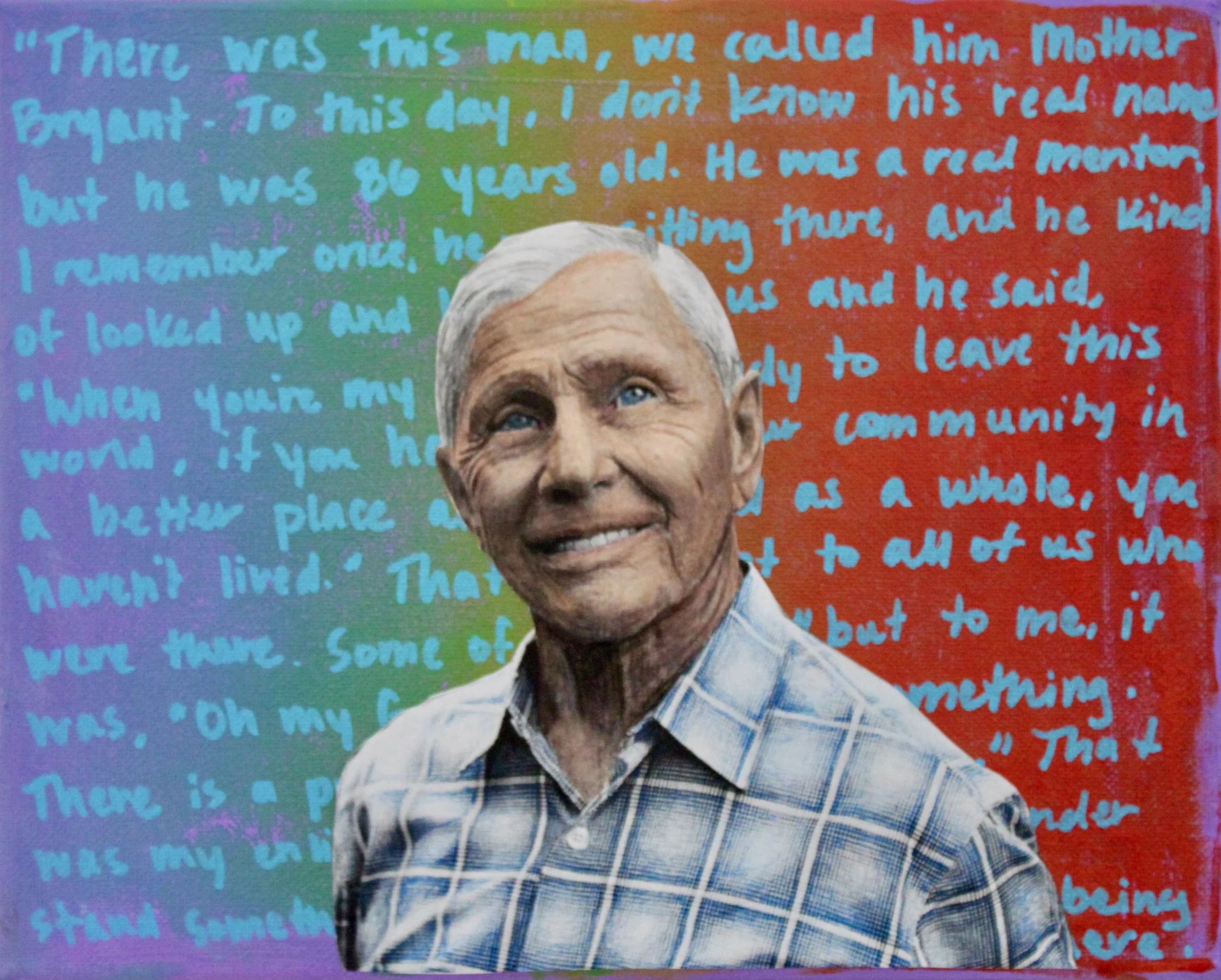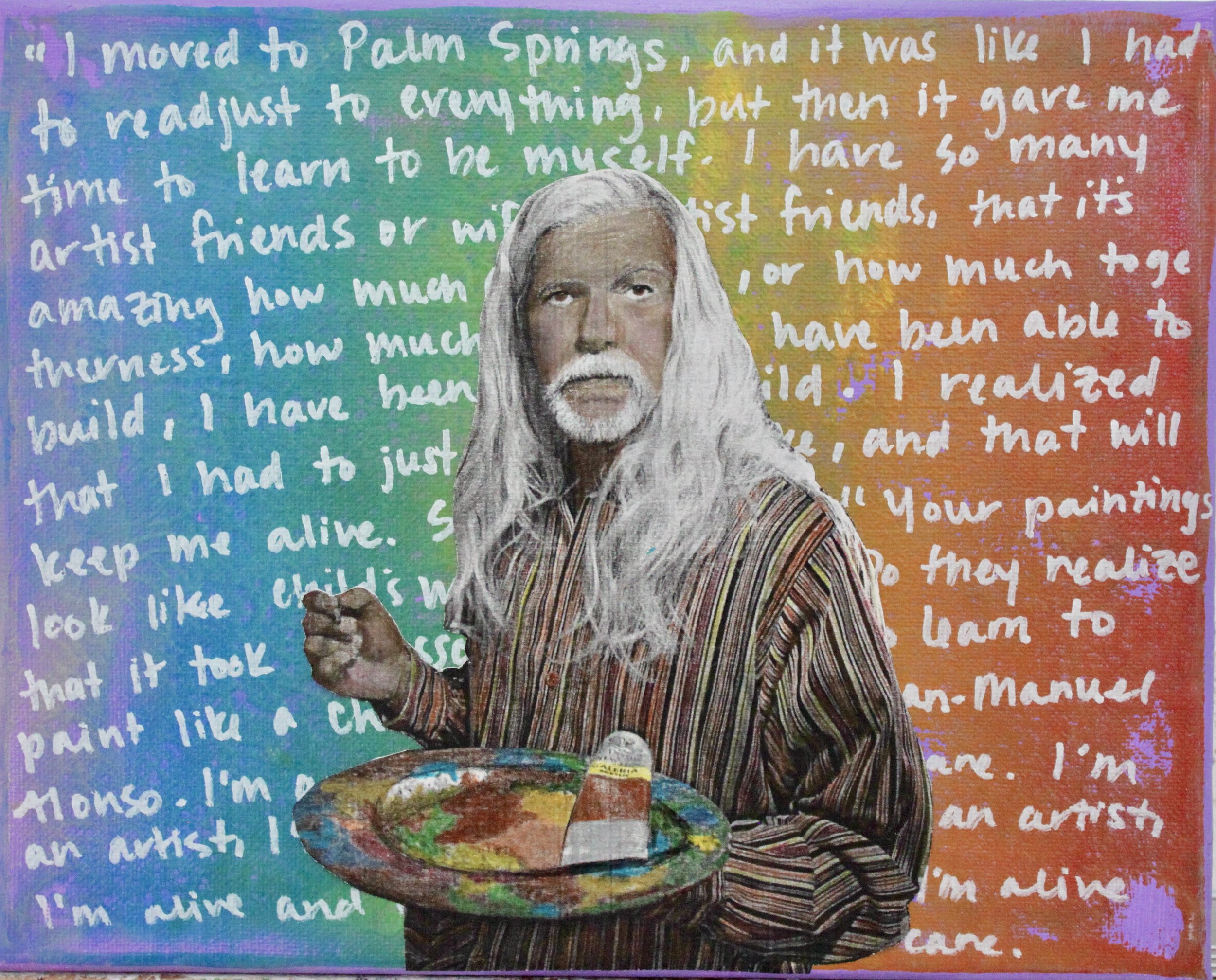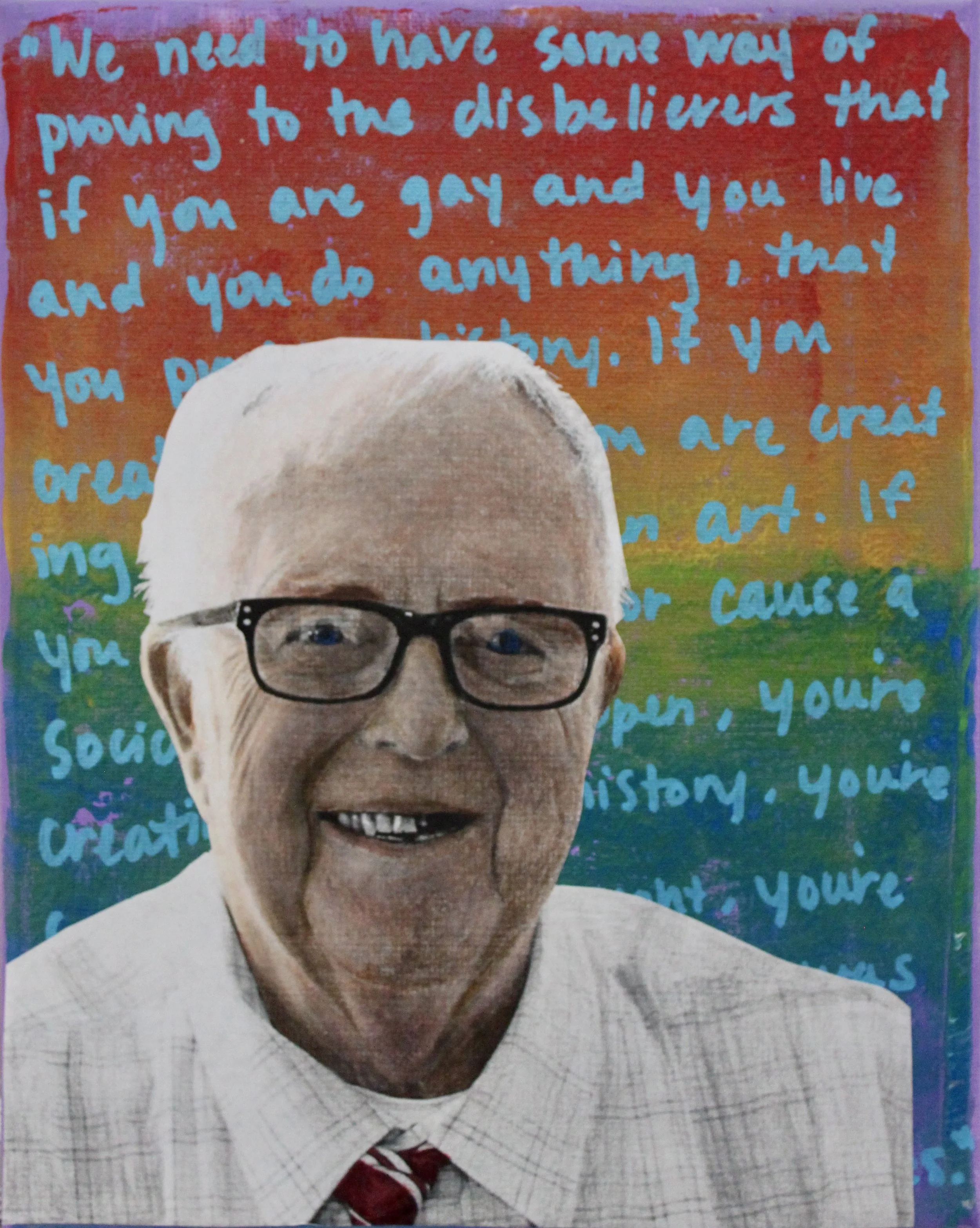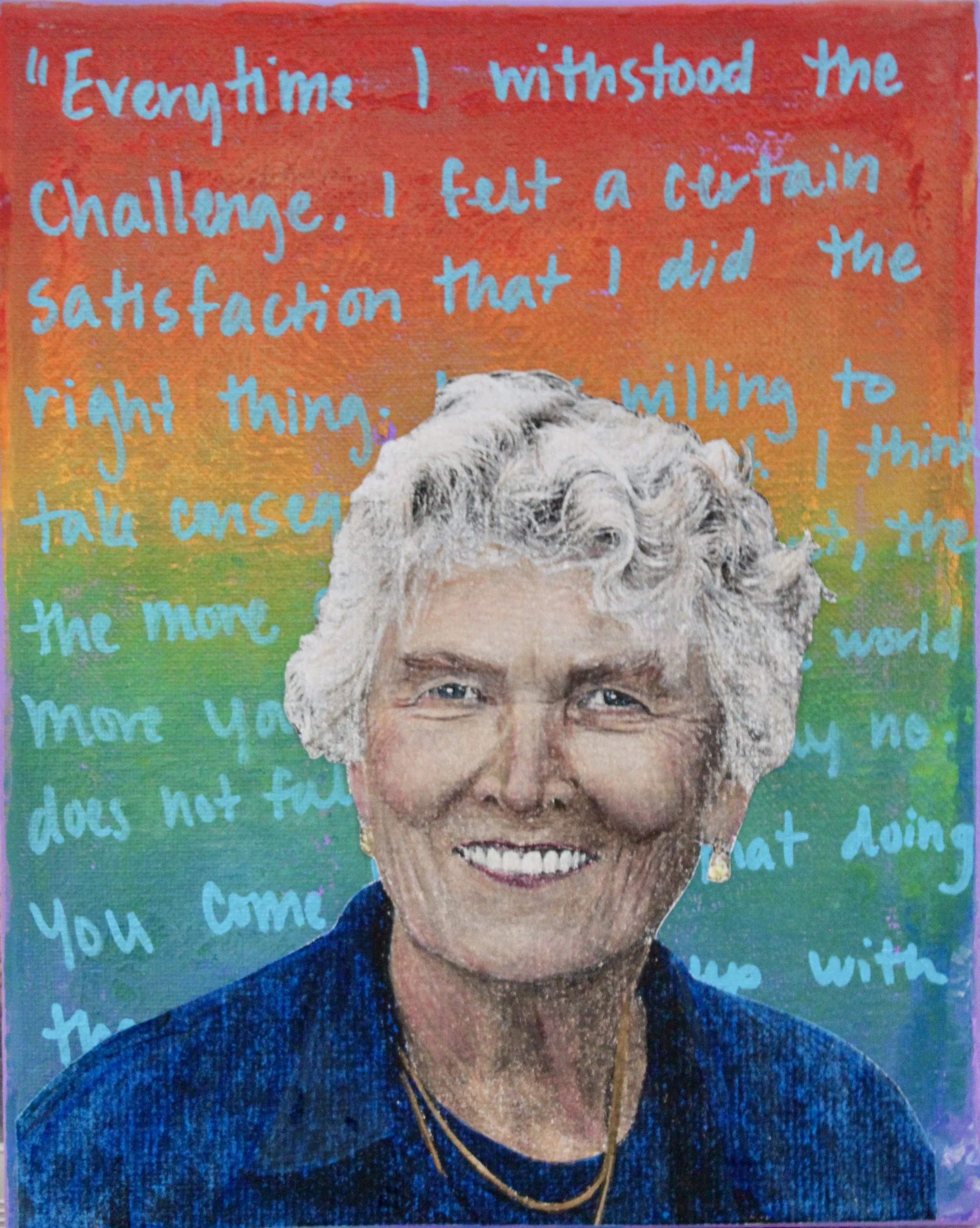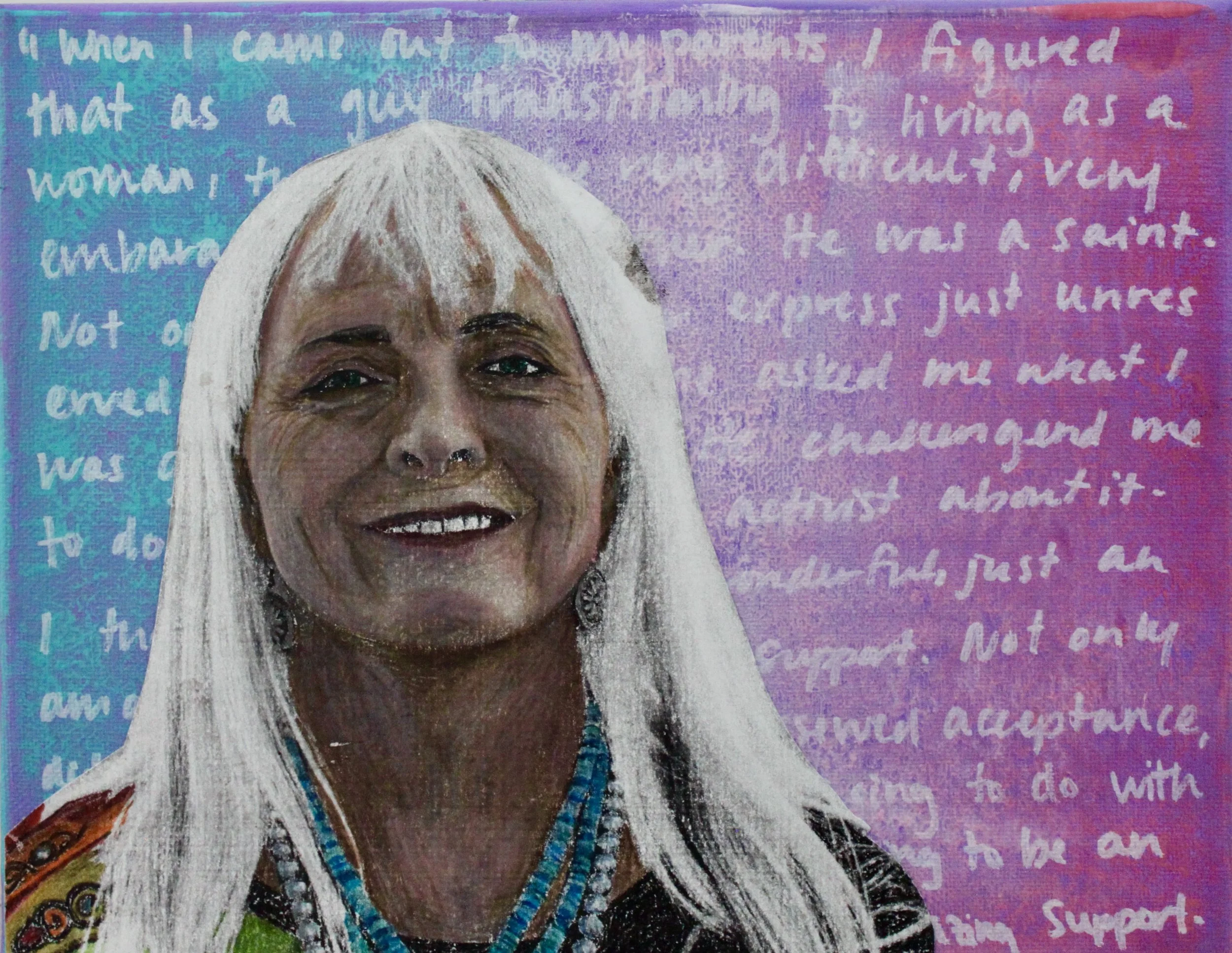Emma Colquitt-Sayers - Business woman, community organizer
“There is no giving like the gay community giving. It’s almost like, we know as gay people what it feels like to go without. Whether that be love, or emotions, or whatever. The gay community is a very giving, loving community. I think people who don’t see that or who are trying to put that down, they are depriving themselves of the great opportunity to serve and to love each other and to help each other.” I was so angry with God, and I was saying look, I said, "I'm black, I'm woman, I'm handicapped, and I'm gay. Can't you pick one or two things? You had to have all four of those things?" If you look at when I was feeling at the time was that all four of those things were bad: woman, black, gay, handicapped.and all of those things all four of those things has helped me have defined who I am today.”
Jamison Green - Author, Transgender Health Advocare
“What some people don’t understand is that trans people are not trying to deceive people. We are not trying to be something that we are not. We are actually trying to be our authentic selves, no matter what that looks like on the outside to anyone. But when trans people do what they can to make themselves feel more at home in their body, to make themselves feel more productive in society, then society says, “Oh no, I’m not at home with your body. I don’t want you to be productive in my society.” Why is it that we can’t look at the issues that trans people are actually struggling with and not judge them for being different, for not looking right, for having gender variance that doesn’t feel comfortable for the observer? Let it go. Let it go. There is no reason for you to be frightened of me.”
Mia Yamamoto - Criminal defense attorney, transgender activist
“When I was in law school, I had already started to cross-dress. I would actually go out on the streets. I would mingle with the other drag queens, female impersonators. Once I got a job, I was able to start my therapy. Then I’d see these same people at group therapy, and I was able to get to know them. Their stories were so remarkably similar to mine. The same childhoods, the same feelings. A lot of them, their parents had sent them to therapy, or their wives and their children sent them. I remember the Hollywood group in particular had more attrition than my units in Vietnam. More people lost to suicide, to homicide, to reckless behavior than any unit I was ever with in Vietnam. The night before I went into court for the first time as Mia, I thought, “I’m going to go into all these places and where nobody has ever seen a transgender woman before in their life and I’m going to make it normal.” When I came into court, the prosecutor on my case looks at me and says, “So what are we calling you now?” I said, “That’s the perfect question. I call myself Mia.” I have to admit I was moved to tears by how little I expected from my peers and from the court. The women were like “Welcome to the club.” The guys were like, “I got your back, homey.” The prosecutors especially are people I beat up on pretty much everyday. We’re fighting like crazy all the time. Yet they were incredibly embracing when I finally came to court. Who could even expect that? I’m grateful beyond my ability to express it, because all these people were amazing, and they still are.”
Evan Wolfson - Marriage Equality Pioneer
“Are we in an immensely better place because of the work we did and the progress we made and the transformation we achieved through winning the freedom to marry? There is no doubt about it. This is shown not only through just the obvious historical momentum and the more than one million gay people who have gotten legally married, and the inspiration it has given to battles around the world where we now have 1.1 billion people living in a freedom-to-marry country, but it can also be seen in the report of the Journal of the American Medical Association of Pediatrics that studied where we had won the freedom to marry, and reported that where we had won marriage, the rate of teen suicide had fallen by 14%. Now why is that? It’s not because those teens are getting married - they’re teens. It’s because the message and the dignity and the hope and the freedom and the dream and the affirmation that’s being sent to young people lifts them up and encourages them to go forward. “
Elizabeth Coffey-Williams - Actor, Trans Community Advocate
“We all need to be exactly who we are, rather than some societally created contrivance of gayness or “lesbiterianism” or transgender sexual binary queer. Personally, I don’t care what you call me, as long as you call me Elizabeth”.
Crisosto Apache - Ndeisdzan Poet and Educator
“Finding my identity, learning about who I am, learning where I come from, learning about how that all fits, has been a lifelong journey. I don’t think I’m finished trying to find out how I fit, because I have to think about my cultural context. I have to think about my political context, I have to think about my gender context, my sexuality. How I fit in these multiplexes of my identity.”
Alexei Romanoff - Pride protestor in LA at the Black Cat; Ukrainian immigrant
“There was this man, we called him Mother Bryant.To this day, I don't know his real name, but he was eighty-six years old.He was a real mentor.I remember once he was sitting there, and he kind of looked up and he looked at us and he said, "When you're my age and ready to leave this earth, if you haven't left your community in a better place and the world as a whole, you haven't lived." That didn't get to all of us who were there. Some of them, "Oh, yeah," but to me, it was, "Oh my God. I understand something. There is a purpose for me being here." That was my enlightening.”
Juan-Manuel Alonso - Fashion designer, artist, long-time AIDS survivor
“I moved to Palm Springs, and it was like I had to readjust to the slower life and I had to readjust to everything, but then it gave me time to learn to be by myself. I have so many artist friends or wife-of-artist friends, that it’s amazing how much acceptance, or how much togetherness, how much family we have been able to build, I have been able to build. I realized that I had to just do what I like, and that will keep me alive. Some people say, “Your paintings look like child’s work.” I think, “Do they realize that it took Picasso his entire life to learn to paint like a child?”! My name is Juan-Manuel Alonso. I’m an artist, I’m alive, and I care.”
Jean-Nickolaus Tretter - LGBT Historian
“We need to have some way of proving to the disbelievers that if you are gay and you live and you do anything, that you produce history. If you create anything, you’re creating gay and lesbian art. If you build anything or cause a social cause to happen, you’re creating LGBTQ* history, you’re creating LGBTQ thought, you’re creating LGBTQ music. It was a hard lesson to learn. People still don’t want to believe us sometimes.”
*gay and lesbian updated to LGTBQ for context and inclusivity.
Grethe Cammermeyer - Nurse, Army Colonel, DADT activist
“Everytime I withstood the challenge, I felt a certain satisfaction that I did the right thing. I was willing to take consequences for that. I think the more a person does that, the more you realize that the world does not fall apart if you say no. You come to believe that doing the right thing ends up with the right consequences.”
Nancy Nangeroni - Transgender radio host, educator, and activist
“When I came out to my parents, I figured that as a guy transitioning to living as a woman, this would be very difficult, very embarrassing for my father. He was a saint. Not only did my father express just unreserved acceptance, but he asked me what I was going to do with it. He challenged me to do something to be an activist about it. I thought that was just wonderful, just an amazing, amazing level of support.”
Mark Segal - Stonewall Witness, Publisher of Philadelphia Gay News
“What most people are not aware of is that Stonewall was more than one night. It was four. The next three nights, members of the community came together for the first time, I mean everybody from every political spectrum of the community who wanted change, which primarily were people in their twenties and thirties. They gave speeches outside Stonewall. At that period of time, 1969, you have to realize that women were fighting for their rights. African Americans were fighting for their rights. Puerto Ricans were fighting for their rights. Everybody was fighting for their rights. The only group that wasn’t were the gay men and lesbian women. They wanted change, but they didn’t know what to do about it. The spark of Stonewall created that. Thank God for the NYC police raiding that bar! They brought us all together. The most magnificent, incredible thing to watch were those three nights after Stonewall, to watch men and women from our community coming together to speak in one voice. Afterward, a bunch of us got together and created the Gay Liberation Front, which changed the world.”
